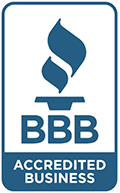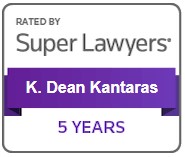
Expert Legal Guidance You Can Trust
Palm Harbor Child Custody Lawyer
Helping You Do What's Best for Your Child
There's a lot at stake during custody battles in Palm Harbor, FL. But, unfortunately, how you handle your child custody dispute can affect your relationship with your co-parent and child for years, making navigating a child custody case daunting.
At K. Dean Kantaras, P.A., our Palm Harborchild custody attorneys can help you pursue an outcome in your child custody case that enables your children to thrive and helps you maintain close contact with them.
Our Palm Harbor Child Custody Attorneys at K. Dean Kantaras, P.A. are here to help. In life, there is no job more important than a parent’s.
In law, few cases are more rewarding than guarding or repairing a parent’s rightful position in their child’s life.
Call today to schedule to speak to one of our top-rated child custody attorneys.
To Schedule a Consultation With Our Palm Harbor Legal Team, Contact Our Law Firm Online or Via Phone at (727) 939-6113!
Terms You Need to Know During a Child Custody Dispute
Before we cover how Florida law handle child custody, let's review some terms you should know. Florida courts prefer to use alternative words during child custody battles emphasizing the parents' shared responsibility to do what's best for their children.
As a result, specific terms, like "custody" or "custodial/noncustodial parent," may or may not make an appearance in your child custody case (depending on the judge presiding over your custody case).
You should familiarize yourself with the following terms:
- Sole parental responsibility. When a parent has sole parental responsibility, the child lives with them all the time, and that parent is responsible for caring for the child. "Sole custody" is another phrase for this arrangement.
- Shared parental responsibility. In a shared parental responsibility arrangement, both parents have custody and work together to help their child thrive. They may take turns housing the child. Traditionally, shared parental responsibility can also be called "joint-custody."
- Majority timesharing. In a majority timesharing arrangement, one parent houses the child a majority (51%+) of the time. More traditionally, the parent with majority timesharing may be called the "custodial" parent. The other parent, who houses the child a minority of the time, may be called the "noncustodial" parent.
- Equal timesharing. In an equal timesharing arrangement, the parents house the child for an equal amount of time.
How Does Child Custody Work in FL?
By default, Florida courts assume that both parents should be involved in their child's life. For this reason, courts in FL tend to prefer shared parental responsibility to sole parental responsibility.
However, the court may determine that one parent is unfit to act as a caregiver. A parent may be unfit if they:
- Have a record of domestic violence;
- Have a record of acting cruelly towards or neglecting the child;
- Abuse alcohol or other substances;
- Have a mental or physical condition that prevents them from caring for the child;
- Don't have a safe home.
These are just some factors courts in FL consider when determining whether a parent is unfit to act as a custodian. If one parent is unfit, the court may award the other parent sole parental responsibility to help them care for the child.
Schedule a Consultation With Our Palm Harbor Family Law Attorneys and Call
How Can a Man Get Full Custody of His Child in Florida?
It is rare for either parent to get sole parental custody in Florida. However, it is not impossible. For a court to grant full custody to either parent, it must determine that shared parental responsibility would harm the children and not be in their best interests.
In any child custody case, the court's primary goal is to pursue the children's best interests. To that end, the FL court weighs the following factors during child custody cases, among others:
- The physical and mental health of both parents;
- How the parents interacted with each other and the children before the child custody case;
- The work and home lives of both parents;
- How the child custody case may affect the community the child lives or goes to school in;
- The preferences of the child, depending on their age (the older the child, the more heavily the court weighs their opinion);
- How much each parent knows about the child;
- How each parent disciplined the child before the custody case;
- How each parent plans to help the child pursues their best interests.
If the parents agree on how to handle custody and want to resolve the child custody battle amicably, they can present a joint parenting plan to the court. The parenting plan lays out terms for the timeshare and visitation arrangement, including:
- Where the child will live a majority of the time;
- How the parents plan to share custody weekly;
- How the parents plan to handle special events like holidays and vacations;
- How the parents intend to preserve the children's best interests post-child custody battle;
- Boundaries the parents will share for parenting the child;
- Disciplinary tactics the parents agree to use;
- How to handle expenses like health care and dental fees;
- How to handle the child's educational, cultural, and religious experiences;
- Any other stipulations the parents feel are essential (like whether they can disparage one another in front of the child, for example).
Typically, family law courts in FL approve joint parenting plans reasonably quickly.
However, if you and your co-parent cannot agree on a custody arrangement, you must present your parenting plan to the court in FL. The family law court will then examine each parenting plan and use that information to develop a parenting plan that the court deems equitable for both parents and is in the children's best interest.
As mentioned earlier, courts in FL prefer it when parents can compromise on a joint parenting plan. To that end, courts may try and use a method of alternative dispute resolution, such as mediation, to help parents reach an agreement before continuing the custody battle in court.
Need a Palm Harbor Custody Attorney? We Can Help
A capable Palm Harbor child custody attorney is vital if navigating a custody arrangement. At K. Dean Kantaras, P.A., our Palm Harbor child custody attorneys can help you draft a comprehensive parenting plan that increases your chances of receiving a favorable outcome in your custody case.
To Schedule a Consultation With Our Legal Team and Learn More About How Our Family Law AttorneysCan Help You Protect Your Parental Rights and Do What's Best for Your Child, Contact Our Law Firm Onlineor Via Phone at (727) 939-6113!
-
Several Decades of Experience on Your Side
-
Top Rating for Ethics & Skill of AV Preeminent®
-
Board Certified Specialist in Family Law
-
Selection for Florida Super Lawyers® - Top 5%












